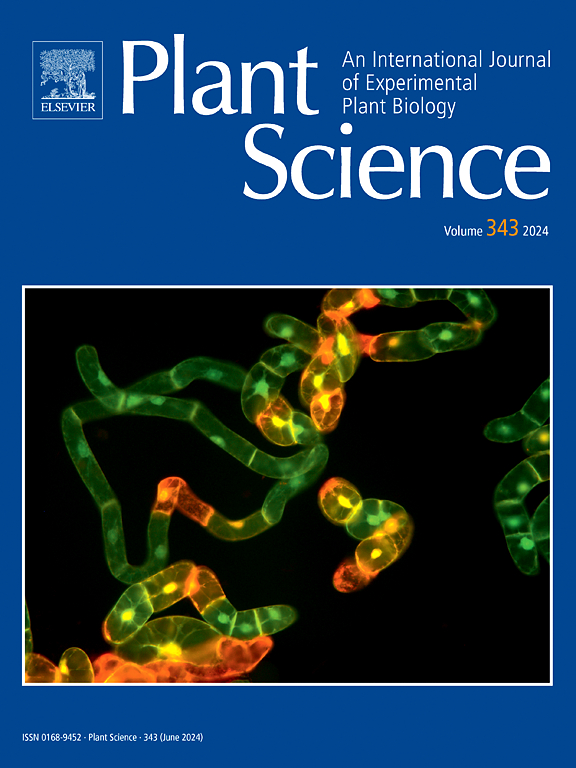Molecular mechanisms underlying abiotic stress responses in buckwheat
IF 4.2
2区 生物学
Q2 BIOCHEMISTRY & MOLECULAR BIOLOGY
引用次数: 0
Abstract
Plants have endured evolutionary changes for hundreds of years under the impact of increasing abiotic and biotic stress due to increasing human activities over the past centuries. Scientists have been working to understand the molecular mechanisms of plant responses to severe environmental stress, as plants have complex molecular arrangements to respond and adapt to abiotic stress, including drought, cold, and heat stress. Buckwheat (Fagopyrum spp.) is a resilient pseudocereal known for its nutritional value and adaptability to various environmental conditions, making it an essential crop in sustainable agriculture. It is particularly noted for its gluten-free nature and high-quality protein content, which benefit those with gluten sensitivities. However, recent studies revealed that buckwheat cultivation faces significant challenges from abiotic stressors such as drought, salinity, temperature extremes, and heavy metal toxicity, which can adversely affect its growth and yield. We have acknowledged key genes and factors in regulating complex responses and tolerance of plants in response to abiotic stresses. We compiled new data about diverse mechanisms by which different Fagopyrum species manage abiotic stress, encompassing physiological, biochemical, and molecular adaptations. As global food production demands rise, effective management strategies for these stress factors are increasingly critical for optimising buckwheat production and ensuring food security in a changing climate.
荞麦非生物胁迫响应的分子机制
在过去的几个世纪里,由于人类活动的增加,植物在不断增加的非生物和生物压力的影响下经历了数百年的进化变化。科学家们一直致力于了解植物对严重环境胁迫的分子机制,因为植物具有复杂的分子结构来响应和适应非生物胁迫,包括干旱、寒冷和热胁迫。荞麦(Fagopyrum spp.)是一种具有弹性的假谷物,以其营养价值和对各种环境条件的适应性而闻名,使其成为可持续农业的重要作物。它特别以其无麸质性质和高质量的蛋白质含量而闻名,这对那些对麸质敏感的人有益。然而,最近的研究表明,荞麦种植面临着干旱、盐、极端温度和重金属毒性等非生物胁迫因素的重大挑战,这些胁迫因素可能对其生长和产量产生不利影响。我们已经认识到调控植物对非生物胁迫的复杂反应和耐受性的关键基因和因子。我们收集了关于不同荞麦种管理非生物胁迫的不同机制的新数据,包括生理、生化和分子适应。随着全球粮食生产需求的增加,针对这些压力因素的有效管理策略对于优化荞麦生产和确保气候变化中的粮食安全越来越重要。
本文章由计算机程序翻译,如有差异,请以英文原文为准。
求助全文
约1分钟内获得全文
求助全文
来源期刊

Plant Science
生物-生化与分子生物学
CiteScore
9.10
自引率
1.90%
发文量
322
审稿时长
33 days
期刊介绍:
Plant Science will publish in the minimum of time, research manuscripts as well as commissioned reviews and commentaries recommended by its referees in all areas of experimental plant biology with emphasis in the broad areas of genomics, proteomics, biochemistry (including enzymology), physiology, cell biology, development, genetics, functional plant breeding, systems biology and the interaction of plants with the environment.
Manuscripts for full consideration should be written concisely and essentially as a final report. The main criterion for publication is that the manuscript must contain original and significant insights that lead to a better understanding of fundamental plant biology. Papers centering on plant cell culture should be of interest to a wide audience and methods employed result in a substantial improvement over existing established techniques and approaches. Methods papers are welcome only when the technique(s) described is novel or provides a major advancement of established protocols.
 求助内容:
求助内容: 应助结果提醒方式:
应助结果提醒方式:


